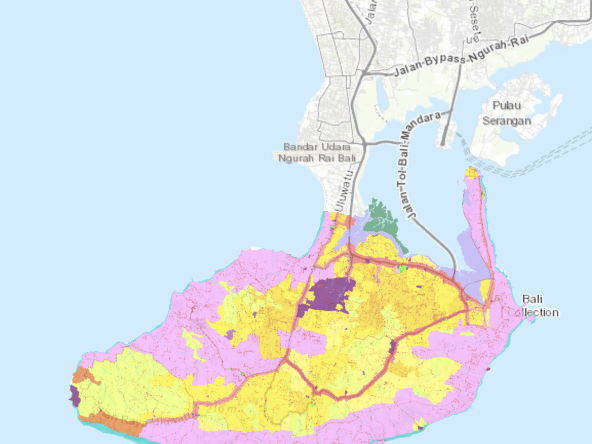Are you dreaming of owning a beachfront villa in Bali or investing in a commercial property in Jakarta? For many foreigners, the idea of owning property in Indonesia represents both an exciting lifestyle opportunity and a potentially lucrative investment. However, navigating Indonesia’s property ownership laws as a foreigner can be complex and fraught with potential pitfalls.
This comprehensive guide will walk you through everything you need to know about using a PT PMA (Perseroan Terbatas Penanaman Modal Asing) to legally purchase and own property in Indonesia. We’ll cover the latest regulations, explain the risks and benefits, outline a clear step-by-step procedure, and provide actionable dos and don’ts to ensure your property investment journey is successful.
Understanding Property Ownership in Indonesia for Foreigners
Indonesia’s property ownership laws are governed by the Basic Agrarian Law (Undang-Undang Pokok Agraria or UUPA), which establishes that only Indonesian citizens can hold freehold title (Hak Milik) to land. This fundamental restriction has led many foreigners to believe that property ownership in Indonesia is impossible, but that’s not entirely accurate.
While direct land ownership is indeed restricted, the Indonesian government has established legal frameworks that allow foreigners to effectively control and develop property through specific legal structures. The most secure and legally compliant of these structures is the PT PMA.
What is a PT PMA and Why Is It Important?
A PT PMA (Perseroan Terbatas Penanaman Modal Asing) is a foreign investment limited liability company established under Indonesian law. It’s not just a legal route; it’s a smart investment structure that allows foreigners to build, lease, or develop real estate within the boundaries of Indonesian law.
When it comes to buying property in Indonesia for foreigners, one of the most secure and scalable methods is through a PT PMA. This structure enables foreign investors to legally acquire specific land rights, such as:
- Hak Guna Bangunan (HGB) – Right to Build: Grants the right to construct and own buildings on land for up to 30 years, extendable for 20 years, with the possibility of further renewals.
- Hak Pakai (HP) – Right to Use: Allows use of land for a specific purpose for up to 25 years, extendable for another 20 years.
- Hak Sewa – Leasehold: Permits leasing of property for up to 25 years, with possible extensions.
Benefits of Using a PT PMA for Property Ownership
1. Full Development Rights
Once you’ve established your PT PMA, you’re clear to build. Hotels, villas, or office towers, it’s all on the table. This isn’t just about landholding; it’s about active business development backed by a legally solid structure.
2. Long-Term Leasing Capabilities
Not ready to buy? A PT PMA also allows for long-term leases, so you can secure strategic land, start your project, and scale, all without upfront ownership. It’s a lower-risk entry point into high-potential markets.
3. Legal Security
The PT PMA structure provides a government-sanctioned system specifically designed for foreigners and investors, avoiding risky nominee arrangements that have historically been used (and are now illegal).
4. Business Operations
Your PT PMA allows for legal operation of rental properties, hotels, or serviced apartments with proper permits, creating potential income streams from your property investment.
5. Profit Repatriation
A properly established PT PMA enables you to legally send profits from your property operations back to your home country, ensuring you can realize returns on your investment.
6. Flexible Exit Strategy
The PT PMA structure provides options for transferring ownership or exiting investments when desired, giving you flexibility for future planning.
7. Tax Efficiency
Through a PT PMA, you can deduct expenses from revenue and minimize withholding taxes through reinvestments, potentially improving the overall financial performance of your investment.
Risks and Limitations of PT PMA Property Ownership
While the PT PMA structure offers significant advantages, it’s important to understand the potential risks and limitations:
1. Shareholder Control Issues
Major decisions regarding land or properties require approval at a General Meeting of Shareholders (GMS), which can lead to deadlocks if shareholders disagree. For a GMS decision to be valid, shareholders representing more than half (1/2) of the total voting shares must attend or be represented.
2. Compliance Requirements
A PT PMA must follow strict compliance and reporting rules under Indonesia’s Investment Coordinating Board (BKPM). Failure to meet these requirements can result in penalties or even the revocation of business licenses.
3. Minimum Capital Requirements
PT PMAs are required to have a minimum investment of 10 billion IDR (approximately $650,000-$700,000 USD as of 2025), with at least 25% of this amount to be paid up. This high capital requirement can be a barrier for smaller investors.
4. Banking Challenges
Foreigners often face difficulties opening local Indonesian bank accounts, which can complicate property transactions. International wire transfers for property transactions can be expensive, slow, difficult to track, and may delay or derail deals.
5. Restricted Areas
Foreigners cannot buy property in areas designated for:
- National security (near military bases, airports)
- Environmental protection (national parks, forest reserves)
- Cultural heritage sites
- Certain islands with foreign policy restrictions (like Natuna near the South China Sea)
6. Complexity and Ongoing Management
The process of establishing and maintaining a PT PMA can be complex and time-consuming, requiring ongoing management and compliance with Indonesian business regulations.
Step-by-Step Procedure for Property Purchase Using PT PMA
Phase 1: Establishing the PT PMA
Step 1: Prepare Required Documents
- Valid passport
- Indonesian tax ID number (NPWP) – can be obtained during the PT PMA establishment process
- Proof of residence (KITAS/KITAP or other valid stay permit)
- Business plan for the PT PMA
- Initial investment funds
Step 2: Determine Company Structure
- Decide on shareholder composition (can be 100% foreign-owned)
- Appoint at least one director and one commissioner
- Determine authorized and paid-up capital
- Define business activities (must include property development/management)
Step 3: Reserve Company Name
- Submit name reservation application to the Ministry of Law and Human Rights
- Ensure the name is not already in use and complies with Indonesian naming regulations
Step 4: Draft Company Documents
- Prepare Articles of Association (Anggaran Dasar)
- Draft Shareholder Agreement with clear provisions for exit strategies, dispute resolution, etc.
Step 5: Notarize Company Documents
- Engage a licensed Indonesian notary
- Execute the Deed of Establishment
- Notarize all company documents
Step 6: Obtain Legal Entity Status
- Register the company with the Ministry of Law and Human Rights
- Receive company registration number (NIB)
- Obtain business identification number
Step 7: Complete Post-Establishment Requirements
- Register with the Investment Coordinating Board (BKPM)
- Open a corporate bank account
- Register for tax ID (NPWP) if not already obtained
- Fulfill minimum investment requirements
- Obtain necessary business licenses
Phase 2: Property Acquisition Process
Step 8: Property Search and Due Diligence
- Identify suitable property that meets legal requirements
- Verify that the location is not in a restricted area
- Engage a licensed property agent familiar with PT PMA purchases
- Conduct thorough due diligence on the property
Step 9: Determine Appropriate Land Rights
- For PT PMA, typically acquire HGB (Right to Build) for commercial properties or Hak Pakai (Right to Use) for certain residential properties
Step 10: Negotiate and Structure the Deal
- Negotiate purchase price and terms
- Prepare for applicable taxes and fees
- Structure payment schedule
- Consider land subdivision strategy for larger developments
Step 11: Prepare Preliminary Agreements
- Draft and sign Preliminary Purchase Agreement (PPJB)
- Pay deposit (typically 10-30%)
- Include clear conditions and timelines
Step 12: Conduct Final Legal Verification
- Have your legal team verify all documents
- Ensure all permits and certificates are valid
- Confirm seller has legal authority to transfer the property
Phase 3: Completing the Transaction
Step 13: Execute the Sale and Purchase Deed
- Engage a licensed Land Deed Official (PPAT)
- Sign the Sale and Purchase Deed (Akta Jual Beli)
- Pay the remaining purchase amount
Step 14: Pay Required Taxes and Fees
- Acquisition Tax (BPHTB) – typically 5% of property value
- Pay notary and legal fees (1-2.5% of property value)
- Value Added Tax (PPN) – 10% for new properties
- Luxury Tax if applicable (5% for high-value properties)
Step 15: Transfer Land Title
- Submit title transfer application to the National Land Office (BPN)
- Pay title transfer fee
- Receive new land certificate in the PT PMA’s name
Step 16: Register Property with Local Authorities
- Register with local tax office for annual property tax (PBB)
- Notify local village administration (Kelurahan)
- Update utility connections to PT PMA’s name
Phase 4: Post-Acquisition Compliance
Step 17: Fulfill Ongoing PT PMA Obligations
- Submit regular investment activity reports to BKPM
- Maintain proper financial records
- File annual tax returns
- Hold annual shareholder meetings
- Comply with minimum employment requirements if applicable
Step 18: Property Management Setup
- Establish property management system
- Set up accounting for rental income if applicable
- Arrange property insurance
- Implement maintenance procedures
Critical Structural Considerations for Your PT PMA
1. Shareholder Agreement
A well-drafted Shareholder Agreement is essential when multiple shareholders are involved. It defines how decisions are made, how disputes are handled, and how shareholders can exit. Ensure your agreement covers:
- Exit Strategy: Include a Right of First Refusal (ROFR) and Buy-Sell Clauses
- Deadlock Resolution: Provide a clear process if shareholders reach an impasse
- Drag-Along and Tag-Along Rights: Protect both majority and minority shareholders
- Dividends vs. Reinvestment Policy: Clearly state how company profits will be used
- Dispute Resolution: Specify international arbitration in a neutral venue
2. Land Subdivision Strategy
If your PT PMA holds a larger piece of land intended for development (like a villa complex), consider a land subdivision strategy early on. This means legally splitting the main land title into smaller, individual titles for each plot or villa, providing:
- Easier sales of individually titled plots
- Better value capture
- Market flexibility
- Reduced risk through diversification
Actionable Dos and Don’ts for PT PMA Property Ownership
DO:
- DO engage qualified legal counsel experienced in foreign property transactions in Indonesia. The investment in proper legal guidance will pay dividends in avoiding costly mistakes.
- DO conduct thorough due diligence on any property before purchase, including verifying land certificates, checking for encumbrances, confirming zoning, and ensuring there are no existing disputes.
- DO create a comprehensive shareholder agreement if your PT PMA involves multiple shareholders, clearly outlining decision-making processes, dispute resolution mechanisms, and exit strategies.
- DO maintain strict compliance with all BKPM reporting requirements and other regulatory obligations to avoid penalties or business license issues.
- DO consider a land subdivision strategy for larger developments to increase flexibility and potentially enhance value.
- DO establish reliable banking channels for property transactions to avoid payment complications, which are a common barrier for foreign buyers.
- DO budget for all applicable taxes and fees, including the 5% Acquisition Tax (BPHTB), notary fees, and annual property taxes.
- DO maintain proper documentation of all transactions, permits, and compliance activities for future reference and potential audits.
- DO research location restrictions thoroughly before committing to a property purchase to ensure the area is not designated as restricted for foreign ownership.
- DO plan for the long term, including renewal of land rights certificates and potential exit strategies.
DON’T:
- DON’T use nominee arrangements to circumvent foreign ownership restrictions. These arrangements are illegal and provide no legal protection for your investment.
- DON’T underestimate the minimum capital requirements for establishing a PT PMA, which is currently 10 billion IDR (approximately $650,000-$700,000 USD).
- DON’T skip professional legal advice to save costs, as this often leads to much more expensive problems later.
- DON’T neglect ongoing compliance requirements for your PT PMA, including regular reporting to BKPM and tax filings.
- DON’T assume all areas in Indonesia are open for foreign investment. Research restricted zones carefully.
- DON’T proceed without clear title verification and confirmation that the seller has legal authority to transfer the property.
- DON’T rush the process. Property acquisition through a PT PMA takes time and requires patience to ensure all steps are completed correctly.
- DON’T ignore cultural and business practices in Indonesia, which can significantly impact your property investment experience.
- DON’T forget to plan for property management after acquisition, especially if you won’t be residing in Indonesia full-time.
- DON’T overlook the importance of building good relationships with local authorities and communities, which can be invaluable for smooth property ownership.
Conclusion: Is PT PMA the Right Choice for You?
Owning property in Indonesia through a PT PMA offers a legally secure path for foreigners to invest in this vibrant and growing market. While the process involves significant capital investment and ongoing compliance requirements, it provides substantial benefits in terms of legal security, development rights, and potential returns.
The key to success lies in thorough preparation, engaging qualified professionals, and maintaining strict compliance with Indonesian regulations. By following the step-by-step procedure outlined in this guide and adhering to the dos and don’ts, you can navigate the complexities of foreign property ownership in Indonesia and potentially realize both lifestyle benefits and investment returns.
Remember that property investment is a long-term commitment, and the PT PMA structure is designed to provide a stable, legally compliant framework for that commitment. With proper planning and execution, your Indonesian property investment can become a valuable asset in your portfolio.
References
- Indonesia’s Basic Agrarian Law (Undang-Undang Pokok Agraria or UUPA)
- Government Regulation No. 18 of 2021 on Right to Manage, Land Rights, Apartment Units, and Land Registration
- Law Number 25 Year 2007 on Capital Investment
- Investment Coordinating Board (BKPM) regulations on foreign investment
- DSGPay (2025). Buying Property in Indonesia for Foreigners: A Complete Guide 2025.
- Emerhub (2025). Protecting Your Land Investment in Indonesia: Key Considerations for PT PMA Structures.
- Bali Exception Real Estate Agency (2024). How Foreigners Can Own Property in Bali: Understanding PT PMA (2025).





